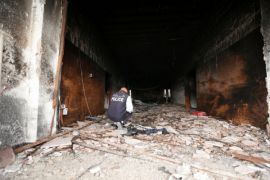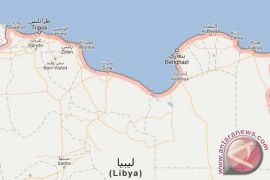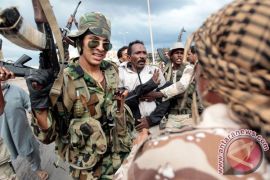Asked at a Senate hearing about the chances that the opposition could "fight their way" to Tripoli and replace Kadhafi, General Carter Ham, head of US Africa Command, said: "Sir, I would assess that as a low likelihood."
His comments underscored growing concern in Washington and European capitals that the conflict in Libya is heading towards a stalemate, with Kadhafi firmly in control in Tripoli and badly-organized rebels unable to turn the tide even under the cover of NATO-led air power.
The general, who led the first stage of the international air campaign in Libya, said bombing raids had undercut the regime`s ability to target civilians -- except in the besieged city of Misrata.
The air strikes launched on March 19 had "significantly degraded" the regime`s ability "to attack civilians with the notable omission of Misrata," he said.
The rebels are struggling to defend Misrata, Libya`s third city, under an onslaught from better armed regime forces.
Ham said Kadhafi had moved tanks and troops into parts of the city and that had made air strikes more difficult to carry out without endangering civilians.
The US military pulled back fighter jets this week from the UN-mandated air campaign with NATO taking command of the Libya operation, which is designed to protect civilians from attacks by regime troops.
Ham said US AC-130 gunships, which can target tanks and ground targets with heavy firepower, were now available to the NATO commander of the air strikes if he needed them.
US military leaders had previously said the AC-130 aircraft, along with other ground-attack planes and fighters, would be withdrawn and placed on standby, pending a request from the NATO alliance. (*)
Editor: Kunto Wibisono
Copyright © ANTARA 2011



